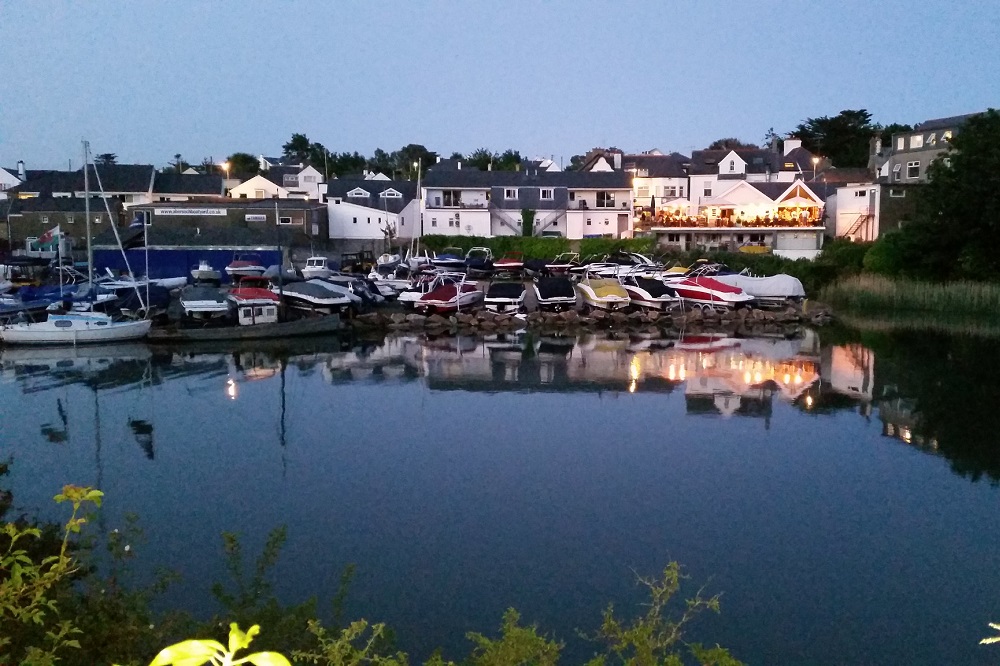Legal challenge to council’s ‘discriminatory’ holiday home premium is dropped

Gareth Williams, local democracy reporter
A campaign to fund a judicial review into the decision to double the council tax charge on holiday homes looks likely to have been dropped.
A crowdfunding page to pay for the legal fight was launched back in April amid claims that Gwynedd Council’s 100% premium – which is fully permitted under current Welsh legislation – is “discriminatory” and “based on anti-English sentiments.”
But despite raising over £8,000 for the judicial review – exceeding the campaign’s initial £6,300 target – a message sent from organisers to donors and seen by S4C’s Newyddion programme said that the risks of a legal challenge “outweigh the chances of success and we do not propose to take the matter further as a group”.
It also said that campaigners’ prospect of securing a judicial review was “at between 50 and 60% – but with a risk of incurring substantial legal costs in court.”
The 100% premium was introduced by Gwynedd Council back in March in a bid to stem the popularity of second homes.
The levy also applies to local people who own second properties in Gwynedd.
At 11%, the county contains the highest percentage of second homes in Wales, with fears that this continual loss of housing stock is affecting local people getting onto the property ladder and increasing house prices.
The authority’s own research shows that 60% of Gwynedd residents are now priced out of the housing market, but the CrowdJustice campaign had claimed that the premium “disproportionately affects those who aren’t Welsh.”
With the authority stressing that the charge isn’t in place to “punish second home owners,” current legislation allows Welsh councils to charge a council tax premium of up to 100% on second and long term empty homes, although only Gwynedd and Swansea currently choose to levy the full amount.
Anthony Chancellor, who set up the page, wrote that many face having to pay around £3,600 a year in tax alone for a two bed property.
‘Unfair’
“The decision taken was unfair, irrational, unreasonable and discriminatory. We believe the decision was based on anti-English sentiments,” he added.
“Little consideration was given to the impact on older people, those who suffer from disabilities or those who are on fixed incomes.
Current rules mean that if a second home is available for commercial letting as self-catering accommodation for 140 or more days in a year, and actually let for at least 70 days, it qualifies for non-domestic rates rather than council tax.
This, according to the Welsh Local Government Association (WLGA), usually results in them also being eligible for Small Business Rate Relief and can often mean they end up paying no taxes at all into the Welsh public purse.
A Gwynedd Council spokesperson said: “The Council has made it a priority to address this situation and to help ensure a suitable supply of affordable housing for local people to live in their communities through our Housing Strategy.
“After a careful discussion and deliberation, and having considered and balanced all relevant factors including the results of a public consultation exercise and implications of the decision, Gwynedd councillors decided at a full Council meeting on 4 March, to increase the Council Tax Premium on second homes and long term empty properties from 50% to 100% for the 2021/22 financial year.
“This decision is expected to generate an additional £3 million of additional tax yield to be earmarked for the delivery of the Council’s Housing Strategy.”
Support our Nation today
For the price of a cup of coffee a month you can help us create an independent, not-for-profit, national news service for the people of Wales, by the people of Wales.






Good! Now pay up!